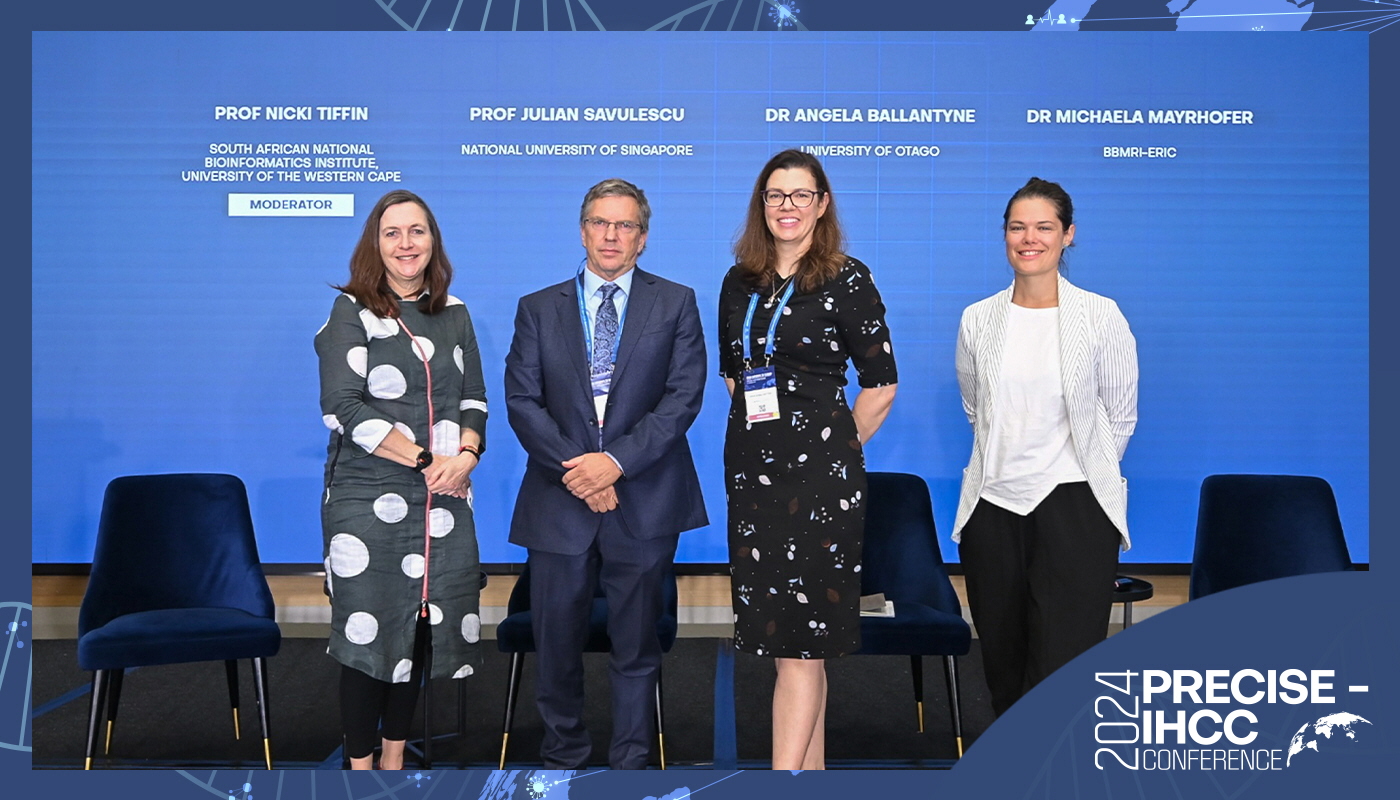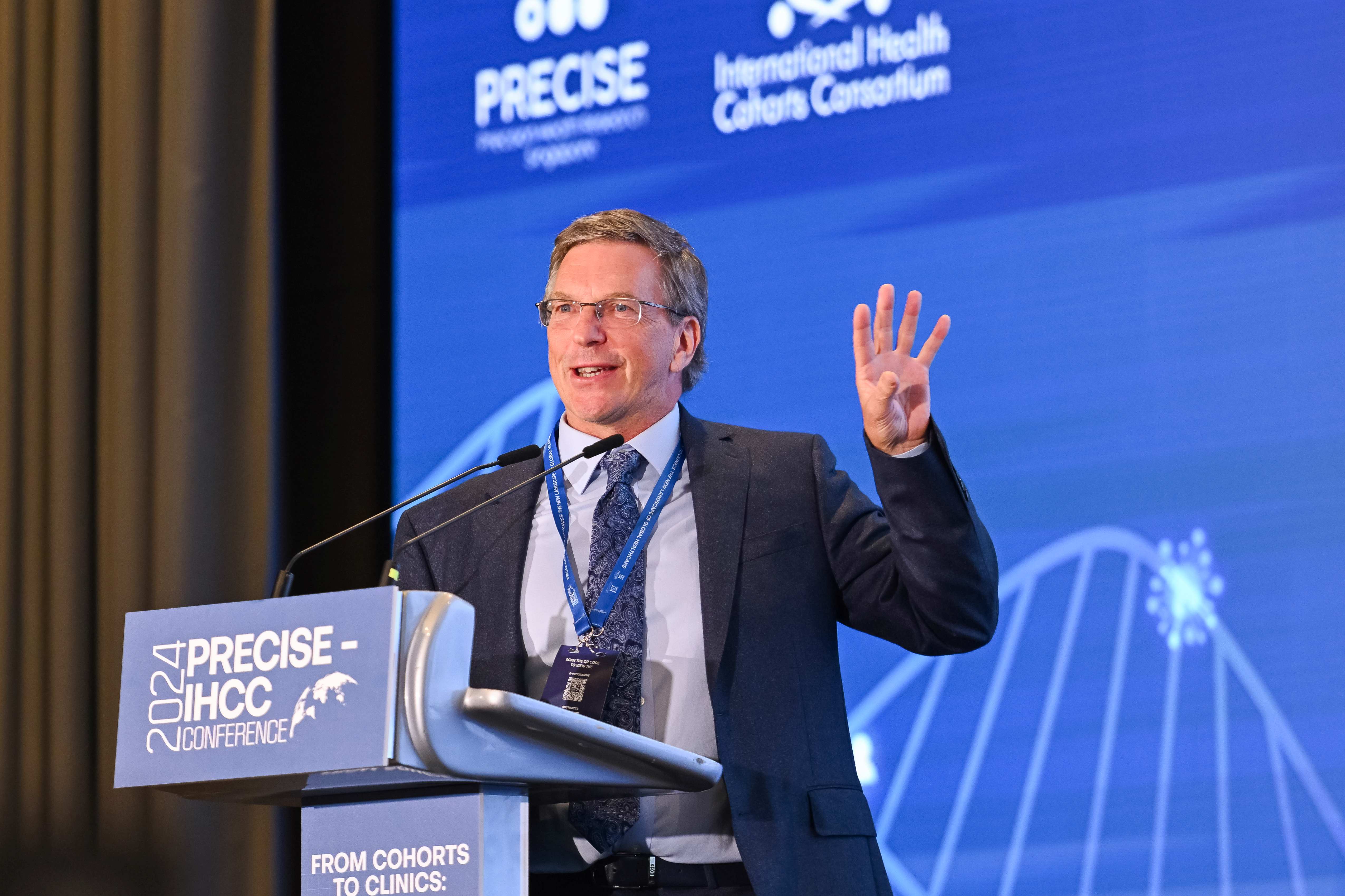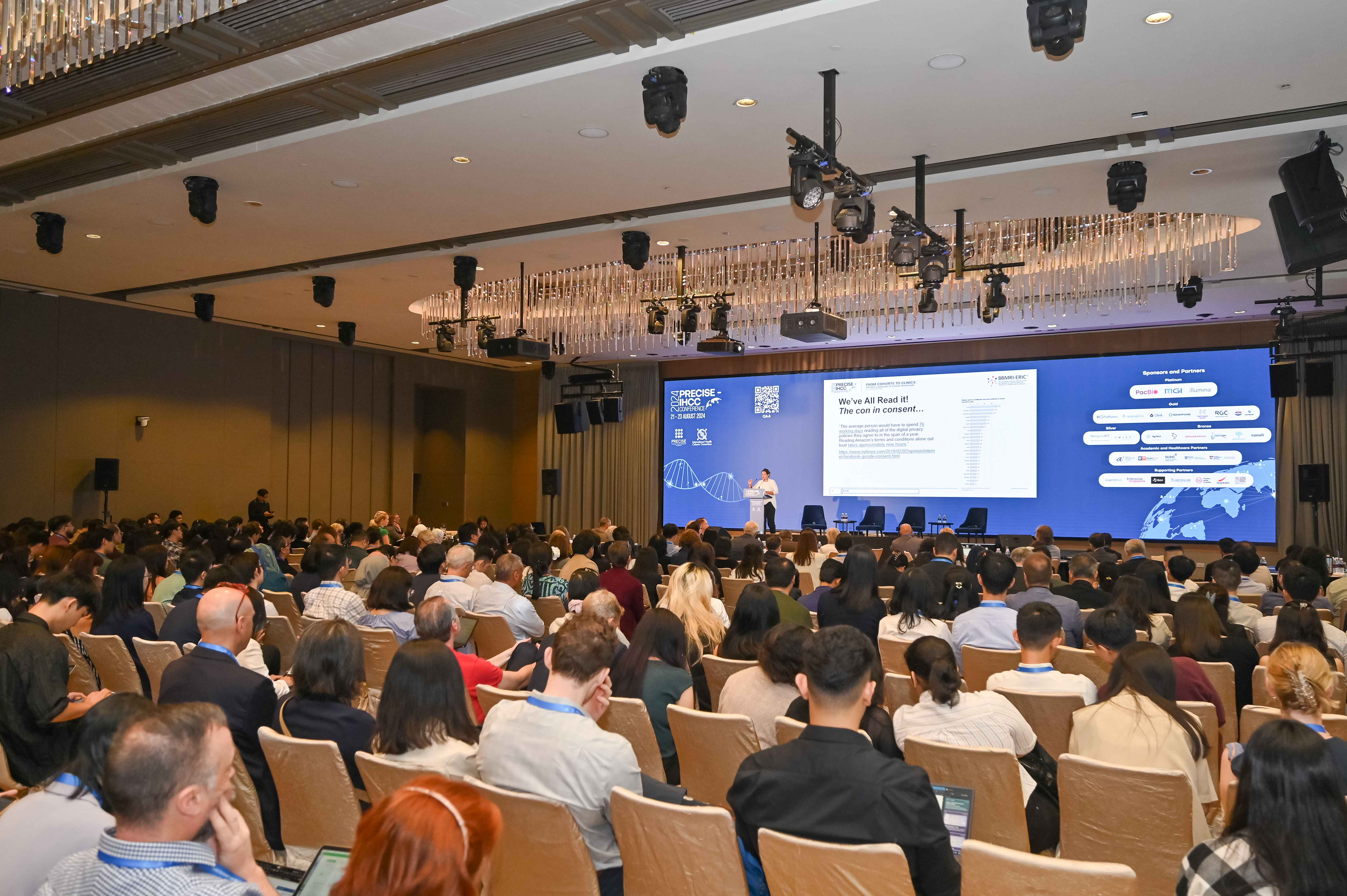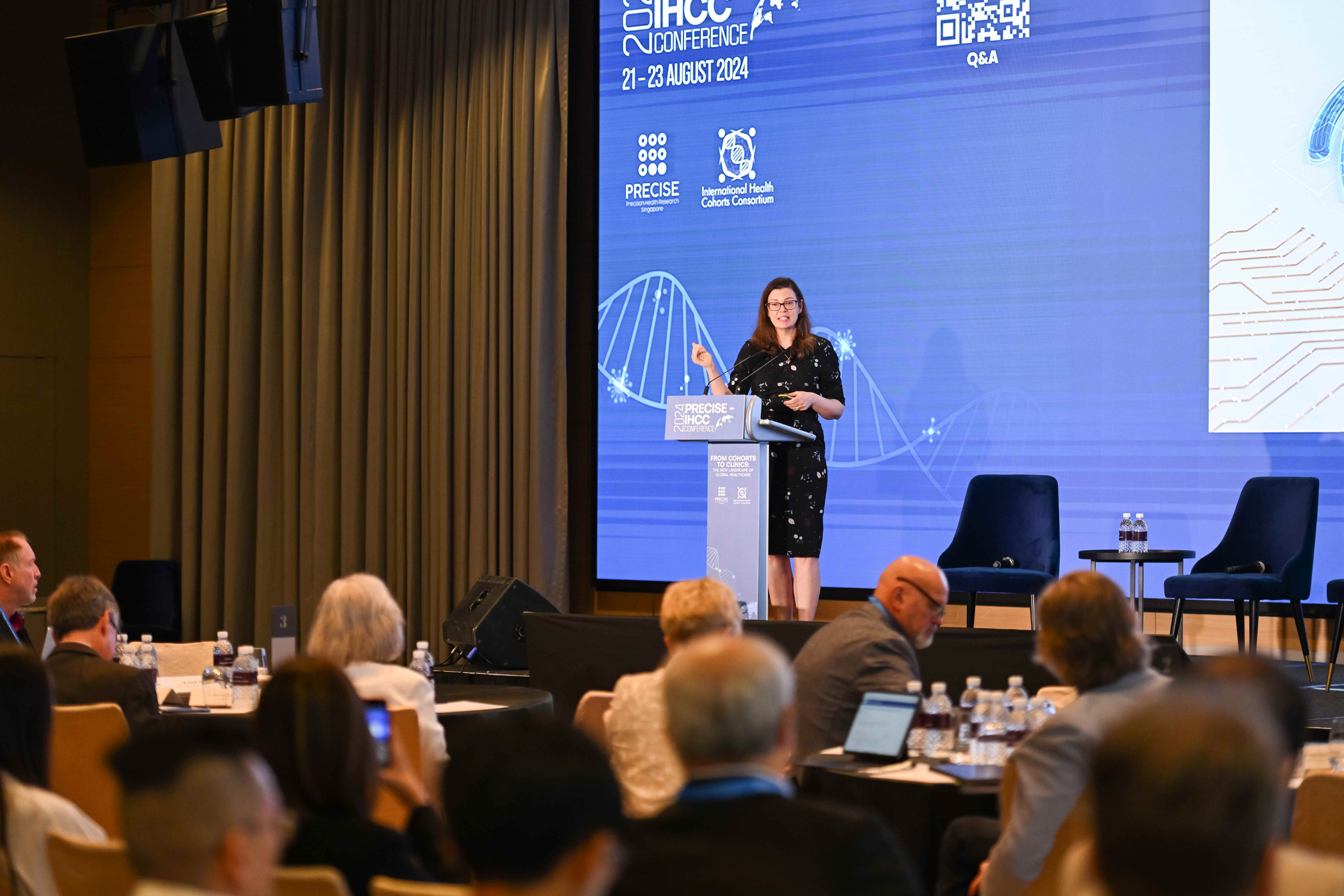Ethical Horizons in Precision Medicine

Speaking at the PRECISE-IHCC Conference, jointly organised by Precision Health Research, Singapore (PRECISE) and the International Health Cohorts Consortium (IHCC), Professor Julian Savulescu, Chen Su Lan Centennial Professor in Medical Ethics and Director for the Centre for Biomedical Ethics at the Yong Loo Lin School of Medicine, National University of Singapore (NUS Medicine) posed the following question to his audience, “How likely are you to use embryo selection services, gene editing or SAT preparation courses to increase the chances that your child would be able to attend a top college?”
Ethics is Subjected to Cultural Bias
A replication of a similar research conducted in the USA, the results from the Singapore study showed that Singaporeans are not only more willing to send their children to SAT preparation courses, they were also more willing to use embryo selection and gene editing services if it could improve their child’s chance of attending a top college. Sharing the results from a recently completed research, Prof Savulescu noted that there is a different level of enthusiasm and receptivity towards gene-based technologies in Singapore compared to the USA, which appeared to be influenced by ethnicity, religions and monthly household income.

More than an inquiry into the public’s attitudes towards gene-based technologies, the presentation also revisited the long-standing debate about eugenics. Briefly outlining ethical issues such as discrimination, social (in)justice when costs are prohibitive, and the ethical obligation for parents to want the best life for their child, Prof Savulescu invited the audience to deliberate on what would be a good model to regulate gene-based technologies from a policy standpoint without impeding scientific innovation, and whether these technologies should be made available only for disease traits or also for behavioural ones. He pointed out the possible impact disruptive behavioural traits, such as antisocial personality, have on society and how they could benefit from gene-based interventions.
Trust Building Beyond Ethics Compliance

Notably, gene-based technologies will continue to advance apace regardless of regulations. Dr Michaela Th. Mayrhofer, Head of ELSI, BBMRI-ERIC reminded that even in the absence of formal/clear regulations, ethics should not be forgotten. She went on to give examples of the different forms ethics can take—formalised guidelines provided by ethics committees, governance structures enforced by data protection and compliance officers, and even informal guidance on ethics from an experienced colleague as well as the work done in research and care. She said “Ethics work is often unseen but takes place every day and is a cornerstone for building and maintaining trust in research and medical care. It is relational and calls for everyone to go beyond mere ethics compliance, which can be perceived as an administrative effort. Ethics needs to be lived.”
Sharing Prof Savulescu’s views about the complexity of navigating the ethics landscape, she explained that it could prove challenging for a single person to effectively oversee the spectrum of ethics considerations. She said, “There are many moving parts in any scientific research—so one can always expect to engage with a plurality of ethics experts to ensure ELSI alignment. But it is noted that no amount of regulations and ethics experts can replace trust as it is the foundation for compliance with ethical guidelines and regulations.
The Importance of Giving Underrepresented Populations a Voice
Precision medicine marks a revolutionary shift from the conventional approach to diagnosis and treatment. Integrating genetics, lifestyle and environmental factors to provide targeted treatment for patients, precision medicine has the potential to improve population health through disease prevention and early intervention. Amid this optimism, however, there are concerns about data privacy and security, equitable access to precision medicine, and the possibility of stigmatisation and discrimination based on genetic information.[1] These issues pose significant challenges to the advancement of the field—particularly in achieving equitable understanding of the genetics of underrepresented and marginalised populations.

Associate Professor Angela Ballantyne, University of Otago, said, “There is a global sense of urgency in ensuring that our genomic databases accurately represent different populations and their subgroups. Yet, the reality is that we are still seeing marginalised and discriminated low-trust groups participating at lower rates. And if we think we can simply scoop up these groups that we haven’t brought along with us later—we would be remiss.”
There is a wealth of information embedded within the genomes of different populations—some of which hold the answer to why people from certain demographics have a genetic predisposition towards certain diseases. That is why diversity is essential, from research participation to recruitment—only then can all people, including those from marginalised and underrepresented populations, truly benefit from scientific advancement and the full potential of genomics.
“We need to understand that achieving genomic and scientific diversity in biobanks can only exist within a political and sociocultural context that fosters trust. Therefore, being transparent and taking time to build relationships with donors and communities and demonstrating trustworthiness are often more important than ‘pitching’ about the benefits of genomic research—because the latter may not be so immediately relatable,” A/Prof Ballantyne explained.
Using Singapore’s National Precision Medicine (NPM) programme as an example, she shared that only 64% of respondents expressed willingness to share their genetic data when a preliminary survey was conducted in 2020.[2] Three years later, 83% expressed willingness to contribute data to NPM. She explained this shift as the difference between being able to trust a known entity, governed by real people, and being asked to trust an abstract idea. She also recognised the conscientious effort made by the Singapore government to build trust by engaging people in ongoing conversations about precision medicine.
Ethics Is an Ongoing Work-in-Progress
When rounding up her talk, Dr Mayrhofer encouraged everyone to not make transparency, trust, research integrity and science communication as afterthoughts. Instead, they should be built into the design of the research and regularly reviewed and updated until the project is finished.[3] She said, “In this dynamic environment where knowledge and technology are continuously evolving, everyone involved in the project should be equally responsible to ensure ethical practice—whether someone is watching or not—because we all have a part to play and ethics needs to be lived every day.”
This is the first of a three-part PRECISE-IHCC conference series. Themed “From Cohorts to Clinics: The New Landscape of Global Healthcare”, the conference held from 21 to 23 August 2024 in Singapore covered 17 topics in precision medicine, and sought to address challenges and opportunities in translating advances into tangible enhancements in patient care to reshape the landscape of modern healthcare.
For post-conference resources, visit here.
[1] Ahmed L, Constantinidou A, Chatzittofis A. Patients' perspectives related to ethical issues and risks in precision medicine: a systematic review. Front Med (Lausanne). 2023 Jun 15;10:1215663. doi: 10.3389/fmed.2023.1215663. PMID: 37396896; PMCID: PMC10310545.
[2] Lysaght T, Ballantyne A, Toh HJ, et al. Trust and Trade-Offs in Sharing Data for Precision Medicine: A National Survey of Singapore. J Pers Med. 2021;11(9):921. doi: 10.3390/jpm11090921.
[3] Akyüz, Kaya, Melanie Goisauf, Gillian M. Martin, Michaela Th. Mayrhofer, Stella Antoniou, Georgia Charalambidou, Constantinos Deltas, Apostolos Malatras, Gregory Papagregoriou, Charalambos Stefanou, and Mariel Voutounou. 2024. “Risk mapping for better governance in biobanking: the case of biobank.cy” Frontiers in Genetics 15. doi: 10.3389/fgene.2024.1397156. Open access

